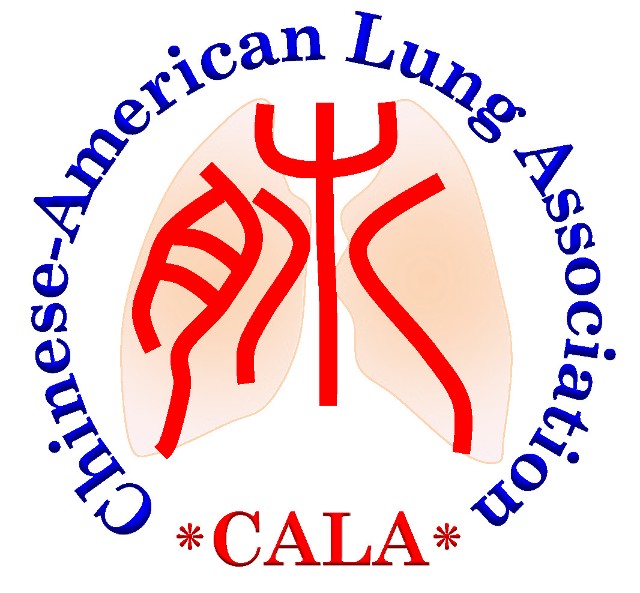
Fostering Research, Promoting Respiratory Health: Chinese American Lung Association - Advancing Science for Breathable Futures
Director of UIC Cardiovascular Research Core, University of Illinois at Chicago
Research Interests : pulmonary hypertension, cardiovascular disease, acute lung injury.
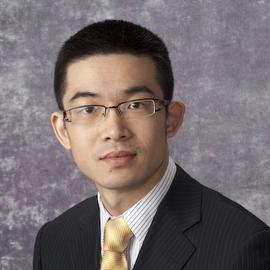
Professor of Pediatrics, Department of Pediatrics, School of Medicine, University of Pittsburgh
Professor, Biostatistics, University of Pittsburgh
Professor, Human Genetics, University of Pittsburgh
Research Interests : Statistical methods for next-generation sequencing data, genetic studies of complex diseases, statistical methods for single cell transcriptomic data, integrative analysis of omics data
My lab is interested in the development of statistical and computational methods for high-throughput genetic/genomic data (e.g. next-generation sequencing, methylation, RNA-seq data, and single cell sequencing) and the genetic study of complex diseases, including age-related macular degeneration (AMD), childhood asthma, and chronic obstructive pulumonary disease (COPD). Our lab is currently supported by the University of Pittsburgh, National Eye Institute (NEI), National Human Genome Research Institute (NHGRI), and National Heart, Lung, and Blood Institute (NHLBI).
website: http://www.pitt.edu/~wec47/
Professor, University of Arizona
Research Interests : Lung, infection, immunity, virus, fungi, asthma.
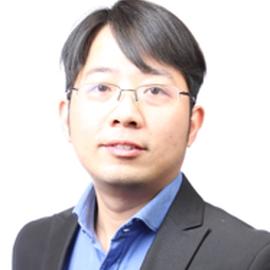
Assistant Professor of Medicine, University of Arizona College of Medicine-Phoenix
Research Interests : Research Interests: Vascular biology, Pulmonary vascular disease, Pulmonary hypertension, Right heart failure, hypoxia
Dr. Dai received his B.S. from Shandong University, China; and Ph.D. in Biochemistry and Molecular Biology from Sun Yat-sen University, China. Dr. Dai completed his postdoctoral training in lung vascular biology at University of Illinois at Chicago and Northwestern University. Dr. Dai’s research interest is studying the role of cellular mechanisms for severe pulmonary vascular remodeling in pulmonary hypertension and identification of novel targets for pulmonary hypertension. Dr. Dai was funded by NHLBI Pathway to Independence Award (Parent K99/R00) and ATS Foundation Research Program.
Vice President, Biostatistics, United therapeutics
Research Interests : Clinical trials in PAH, PH-ILD, IPF, Lung Transplatation .
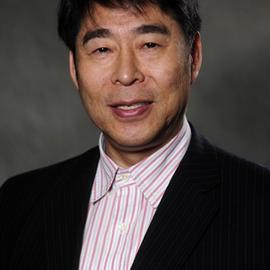
Associate Professor, Environmental and Occupational Health, University of Pittsburgh Director, Inhalation Exposure Facility, University of Pittsburgh;
Chair, Chemical Hygiene Safety Committee, University of Pittsburgh
Research Interests : Acute Lung Injury, Asthma, COPD, Antimicrobial Resistance, Lung Cancer, Pulmonary Fibrosis, Novel Antimicrobials, Respiratory Infection, Sepsis
My laboratory is interested in investigating effects of environmental stressors, such as toxic chemicals and microorganisms, on host response and pulmonary diseases. Our current research is mainly focused on three research areas.
To elucidate the drug resistance mechanisms that multidrug resistant (MDR) bacteria utilize to escape from antibiotic treatment. We also work on the development of patented novel antimicrobials for overcoming MDR bacterial infection.
To understand the pathogenesis of and to identify biomarkers for severe asthma. I am a PI in the severe asthma research program (SARP), which includes eight academic and clinical centers that treat patients participate in a longitudinal study cohort of ~700 individuals.
To investigate the association between inflammation and lung cancer, and to determine the effects of an inflammatory tumor microenvironment on lung tumorigenesis and immunotherapy efficacy.
website: http://www.pitt.edu/~peterdi/
website: https://www.publichealth.pitt.edu/home/directory/yuanpu-di
Associate Research Scientist, Columbia University Medical Center
Research Interests : Lung development, injury and regeneration.
Associate Professor, Johns Hopkins University
Research Interests : Asthma, Allergy.
Senior scientific researcher, Genentech
Research Interests : Lung fibrosis, ARDS, biomarker.
Senior Scientist, STEMCELL Technologies Inc
Research Interests : Cell culture, air liquid interface and organoids, pulmonary disease modeling, drug development and personalized medicine.
Associate Professor, University of Colorado
Research Interests : Pulmonary hypertension, hypoxia, gene regulation, epigenetic .
Associate Professor, University of Illinois at Chicago
Research Interests : Sepsis, lung injury, innate immunity and inflammation, vascular permeability, ventilator-induced lung injury.
Postdoc Fellow, University of Colorado
Research Interests : Stem cell COPD Mucin.
Assistant Professor, University of California Davis
Research Interests : Epigenetics, asthma, environment exposures.
Professor
Department of Surgery
Loyola University Chicago
2160 S 1st Ave, Maywood IL 60153
Email: [email protected]
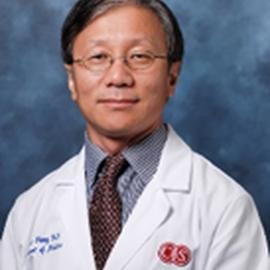
Professor, Department of Medicine Pulmonary Division and the Women’s Guild Lung Institute, Cedars-Sinai Medical Center, Los Angeles, CA.
Professor, Department of Biomedical Sciences, Cedars-Sinai Medical Center, Los Angeles, CA
Research Interests : Lung fibrosis, IPF, alveolar epithelial cells, lung progenitor cells, fibroblast origin, fibroblast subsets, aging, metabolism, therapeutics
The Jiang Laboratory has defined the roles of the glycosaminoglycan hyaluronan and its receptors in regulating epithelial cell injury, progenitor cell regeneration, inflammation and fibrosis in response to non-infectious lung injury. We have a collection of human lung samples, developed strategies to isolate, purify, and culture primary lung epithelial cells and mesenchymal cells, and utilized these resources to generate single cell transcriptomes of lung epithelial cells and mesenchymal subpopulations. My lab has extensive experience in generating genetically modified mouse models and in delineating the mechanisms of lung injury, repair, and fibrosis. Ongoing projects include exploring the epithelial cell subtypes and fibroblast subtypes with single-cell RNA-sequencing, the role of lung progenitor cells in lung injury and repair, transcriptional regulation of lung fibrosis, as well as origin of fibroblasts and myofibroblasts in lung fibrosis, with a focus on discovery and characterization of novel targets.
website: https://www.cedars-sinai.edu/Research/Research-Labs/Jiang-Lab/
Associate professor of research pediatrics, University of Southern California
Research Interests : Lung development and signal transduction.
Associate Professor, University of California San Diego
Research Interests : Asthma, Immunology, Lung Cancer, Wearable Device.
Research assistant professor, Northwestern University
Research Interests : cardiovascular development, disease.
Senior Scientist, Cystic Fibrosis Foundation
Research Interests : CF, stem cells.
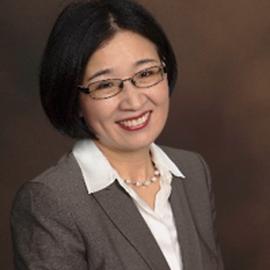
Associate Professor of Medicine, Alpert Medical School of Brown University
Research Biologist, Providence VA Medical Center / Ocean State Research Institute
Research Interests : Acute respiratory destress syndrome (ARDS), Lung injury and repair, Lung inflammation and immunity
Dr. Lu’s Lab is interested in understanding how external insults (e.g. cigarette smoke) and internal stress (e.g. adenosine) affect pulmonary endothelial cells and innate immunity and their roles in the development of pulmonary diseases (e.g. severe lung infections, ARDS, and COPD). Funded by NIH R01 and P20 awards, her current research is focused on understanding the effects and mechanisms of cigarette smoke predisposing patients/animals to severe lung injury and development of ARDS in response to a second insult by targeting pulmonary endothelial cells and alveolar macrophages.
website: https://vivo.brown.edu/display/qilu#
website: http://cpvb.org/qing-lu-dvm-phd/#bio
website: https://www.brown.edu/research/labs/vascular/faculty/lu-lab-overview
Assistant professor, Massachusetts General Hospital
Research Interests : Stem cell, airway epithelium, cell fate determination, tissue regeneration, host defense, infectious diseases.
Professor, Tulane National Primate Research Center, Health Sciences Campus
Research Interests : Innate Immunity, Macrophage biology, Complement system, HIV-associated cardiovascular disease, COVID-19.
Professor, Columbia University Medical Center
Research Interests : Stem Cells, Regeneration, Development, Fibrosis, Cancer, Lung, Esophagus.
Associate Professor, University of Arizona
Research Interests : ARDS and PAH.
Professor, University of California San Diego
Research Interests : Lung Development, Injury Repair.
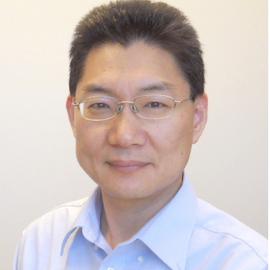
Professor of Pharmacology at Medical College of Georgia, Augusta University
Professor of Medicine at Medical College of Georgia, Augusta University
Research Interests : Chronic Obstructive Pulmonary Disease (COPD), Pulmonary Hypertension, Lung Injury and Repair
Dr. Su’s research lab is to studythe regulatory mechanisms of airway and pulmonary circulation. The labfirst demonstrated that calpain participates VEGF-induced angiogenesis and plays an important role in airway and pulmonary vascular remodeling. Dr. Su’s research labhas been the first to discover and characterize the interaction of endothelial nitric oxide synthase to cytoskeleton protein actin. The lab has first identified the actin binding site on endothelial nitric oxide synthase protein and developed peptide P326TAT that can block the interaction of endothelial nitric oxide synthase to β-actin in lung endothelial cells and reduce the oxidative lung injuries in the side-effects of oxygen therapy. The current research is focused on airway and pulmonary vascular remodeling in COPD, lung endothelial barrier, lung injury and repair in tobacco smoke exposure. Through multidisciplinary approaches at the levels of molecule, cell, organ, whole body and patients, the goal is to find novel mechanisms, new therapeutic strategies and biomarkers for lung injury, COPD, and pulmonary hypertension.
website: https://www.augusta.edu/faculty/directory/view.php?id=YSU
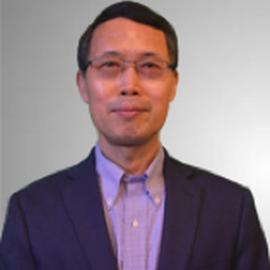
Professor, Department of Molecular, Cellular Physiology at Albany Medical College
Research Interests: pulmonary hypertension, asthma, chronic obstructive pulmonary disease, diabetes, cell calcium, ion channels, reactive oxygen species, inflammation, noncoding RANs
Our research interests are focused on basic, translational and drug discovery research on cell calcium, ion channels, reactive oxygen species, inflammation, and noncoding RANs in pulmonary hypertension, asthma, COPD, and diabetes, which were/are mostly funded by NIH, AHA, ALA, and ADA, and predominantly implemented using physiological, biophysical, biochemical, pharmacological, and genetic approaches at molecular, cellular, tissue and whole animal levels with human specimens.
Research fellow, Cincinnati children’s hospital medical center
Research Interests : Lung regeneration.
Instructor, Cedars-Sinai Medical Center
Research Interests : Pulmonary fibrosis.
Assistant Professor, ShanghaiTech University
Research Interests : Lung regeneration, fibrosis.
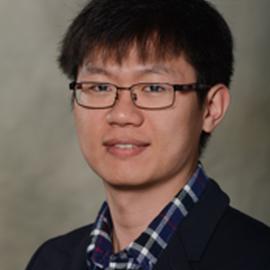
Associate Researcher, Department of Medicine, Division of Pulmonary, Critical care and Sleep Medicine, Icahn School of Medicine at Mount Sinai.
Attending Physician, Department of Pulmonary Medicine, Zhongshan Hospital, Fudan University.
Vice Director, Department of Medical Internet of Things (MIOT) of Shanghai Respiratory Research Institution.
Secretary, Chinese Alliance Against Lung Cancer
Research Interests : Lung Cancer, Lung Fibrosis
Dr. Yang is dedicated in early diagnosis of lung cancer and relevant studies, with special interests on management of pulmonary nodule and validation of diagnostic biomarker panels based on MIOT and radiomics artificial intelligence (AI) platform. He is the member of IASLC Prevention, Screening & Early Detection Committee. Since 2011, he has published 14 SCI research articles and 7 as first author, including which on Am J Resp Crit Care (2013), Can Lett (2015) and Cancer (2015 & 2018), etc. As a presenter for oral or poster presentation in ATS, WCLC, APSR, ISRD couple times. He is one of the peer reviewers for international journals, such as J Cell Mol Med, J Transl Med, etc. He is hosting one National Natural Science Foundation of China (NSFC81500078), and three nationwide multicenter clinical studies as sub-PI (NCT01928836, NCT02726633 and NCT02693496). Dr. Yang currently is working in Prof. Charles A. Powell’s lab in Mount Sinai, focusing on TGFBR2 signaling pathway in lung adenocarcinoma invasion and angiogenesis as well as animal model and image study of lung fibrosis.
website: http://labs.icahn.mssm.edu/powell-lab/
website: http://www.zs-hospital.sh.cn/zsyy/n33/n35/n48/n135/index.html
website: https://www.researchgate.net/profile/Dawei_Yang4
website: http://www.caalc-cn.org/#/index
website: https://www.iaslc.org/about-us/committees#PreventionScreening
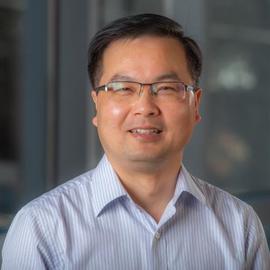
Associate Professor , Brown University
Research Interests: oxidative stress, inflammatory response, mitochondrial dysfunction, mitophagy, cellular senescence, and metabolism.
My research interests focus on the pathogenesis of bronchopulmonary dysplasia (BPD), a chronic lung disease in premature infants. We employ neonatal hyperoxic exposure as a model of BPD to investigate the mechanisms and identify therapeutic targets for this disease.
website: https://vivo.brown.edu/display/hyao3
Associate Professor, Henan normal university China
Research Interests : lipid metabolism in lung fibrosis.
Associate Professor of Medicine, University of Southern California
Research Interests : 1. Role of ER stress and chaperone protein GRP78 in alveolar epithelial abnormalities in pulmonary fibrosis. 2. Transcriptional and epigenetic regulation of pulmonary alveolar epithelial cell (AEC) differentiation.

Associate Professor of Medicine and Human Genetics
Director of PACCM Translational Research Core Laboratory
Director of Biobank, VMI and Cardiology
University of Pittsburgh School of Medicine
Dr. Zhang’s current research is focused on the molecular and genetic basis of pulmonary and vascular diseases including COPD, ILD, sleep apnea and sickle cell and systemic complications associated with these diseases. She is also actively working on the discovery and validation of prognostic and diagnostic biomarkers related to lung and vascular diseases. In addition, functional significance of disease associated genetic variants and their roles in disease pathogenesis is also one of the areas of her research team.
website : https://profiles.dom.pitt.edu/paccm/faculty_info.aspx/Zhang5161
Associate Professor, Shanghai Jiao Tong University
Research Interests : Lung and esophagal development and stem cells
Research Assistant Professor, University of Illinois at Chicago
Research Interests : Lung vascular biology and immunology.
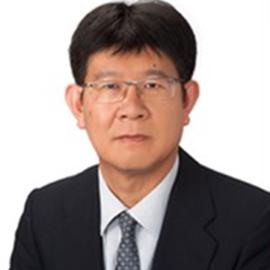
Professor of Physiology and Cell Biology,Ohio State University
Professor of Internal Medicine, Ohio State University
Associate Professor, Human Genetics, University of Pittsburgh
Research Interests : acute lung injury, pulmonary fibrosis, sepsis, protein ubiquitination and deubiquitination, cell signaling, inflammation, lysophospholipid.
My laboratory primary research focuses on the role of lung epithelium in immune responses and host defense against bacterial. We are also interested in development of new therapeutic targets for treating lung injury and pulmonary fibrosis. Research projects encompass three general area:
website: https://medicine.osu.edu/physiology/faculty-research/yutongzhao/pages/index.aspx
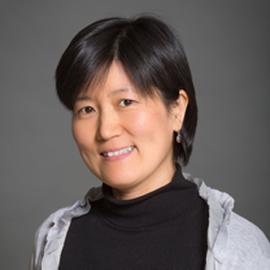
Assistant Professor, Director of the Functional Genomics Laboratory
Channing Division of Network Medicine, Brigham and Women’s Hospital, Harvard Medical School
The central goal of Dr. Zhou’s research group is to decode the molecular mechanism by which genetic variants identified by genome-wide association studies (GWAS) determine disease susceptibility to asthma and COPD by using in vitroand in vivoapproaches. Funded by several NIH R01 or P01 grants, Dr. Zhou’s group has developed integrative approaches to identify regulatory DNA regions, localize functional variants, and evaluate the function of novel COPD GWAS genes in vitroand in vivoin conventional and conditional knockout mice. Dr. Zhou’s group also applied the CRSIRP/Cas-9 based genome editing in cellular models and disease relevant murine models to rapidly perform functional assessments on increasing number of COPD GWAS genes.
website: http://gwas2bio.bwh.harvard.edu
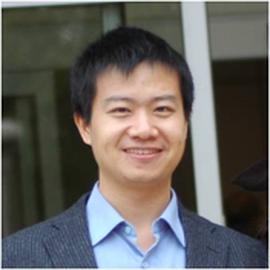
Associate Professor of Medicine, University of Southern California
Assistant Professor of Molecular Microbiology and Immunology, Division of Biology and Medicine, Brown University
Research Interests : Fibrosis, COPD, Asthma, Lung Injury and Repair, Immunology
My primary research interests are directed towards understanding the immunopathogenesis of lung injury and repair. I have interrogated the roles of adenosine signaling, EGFR signaling, and chitinase-like proteins and in a variety of lung diseases including asthma, chronic obstructive pulmonary disease (COPD), and pulmonary fibrosis. My future research plans are aimed at dissecting the common mechanisms that underlie the pathogenesis of pulmonary fibrosis, specifically the role of intracellular receptor trafficking pathways in disease progress. My long-range research goals are to identify the immune and cellular responses that mediate lung injury and repair responses and to identify specific molecular targets that can be targeted in the treatment of related disorders.
website: https://vivo.brown.edu/display/yzhou1